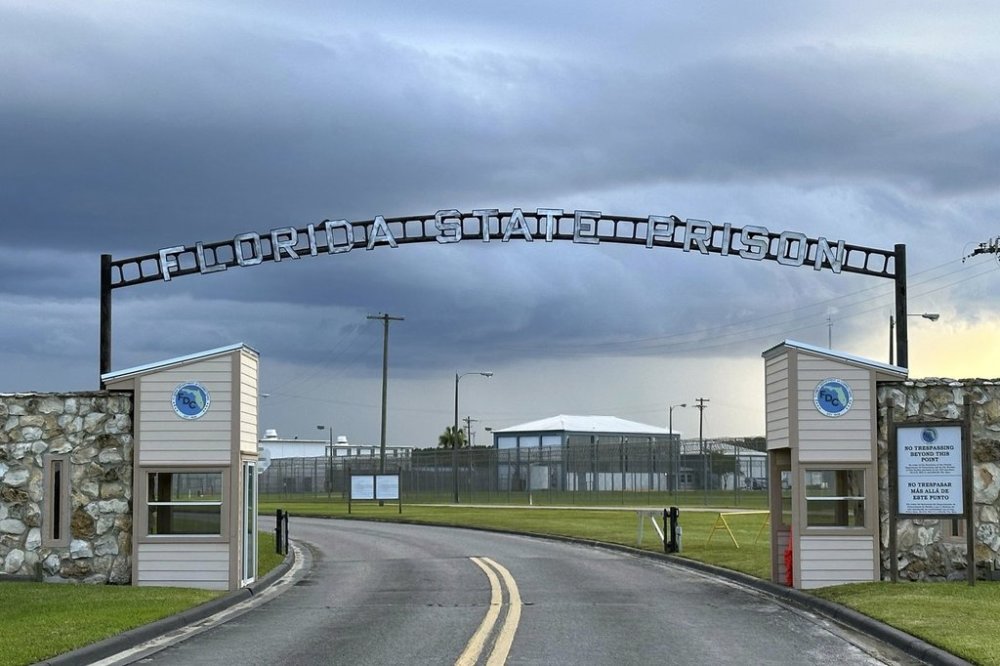World
Florida Sets Execution Record Under DeSantis Amid National Surge

In a significant escalation of capital punishment, Florida executed its ninth inmate of 2025, marking a record number of executions for the state under Governor Ron DeSantis. Edward Zakrzewski, aged 60, was pronounced dead in a state prison on the evening of March 15, 2025. His final words expressed gratitude for what he described as a “cold, calculated, clean, humane, efficient way” of execution, as he received a lethal injection.
This year, the United States has recorded the highest number of executions in a decade, with Florida leading the charge. Zakrzewski became the 27th person executed nationwide in 2025, contributing to a growing trend that has seen more executions in the first seven months of the year than in all of 2024. The state’s actions have drawn attention to a broader national increase in capital punishment, as Florida’s current pace is on track to surpass the total of 28 executions recorded in 2015.
Florida’s Execution Surge and National Trends
Under DeSantis’ leadership, Florida has executed more inmates than any other state this year, surpassing the previous state record for a single year since the death penalty was reinstated in 1976. The increase comes after a prolonged decline in executions across the country, attributed to various factors including legal challenges, a shortage of lethal injection drugs, and diminishing public support for the death penalty.
Historically, executions peaked in 1999 with 98 deaths, but have since decreased significantly. Recent shifts in political climate, particularly urging from Republican leaders like former President Donald Trump, have prompted a renewed push for capital punishment. Trump has called for prosecutors to pursue the death penalty more aggressively, influencing some state legislatures to expand the categories of crimes punishable by death.
John Blume, director of the Cornell Death Penalty Project, noted that the recent uptick does not necessarily correlate with a change in public sentiment towards the death penalty or an increase in death sentences. Instead, he attributes the rise to the discretion exercised by state governors.
Reactions and Controversies
In response to inquiries from the Associated Press, a spokesperson for DeSantis emphasized the governor’s serious approach to capital cases. DeSantis has publicly stated, “There are some crimes that are just so horrific, the only appropriate punishment is the death penalty,” referring to those he deems “the worst of the worst.”
The execution of individuals like Zakrzewski has drawn mixed reactions from victims’ families. For instance, Julie Andrew, who witnessed the execution of her sister’s murderer, expressed relief, stating, “It’s done. My heart felt lighter and I can breathe again.”
Conversely, opponents of the death penalty are increasingly vocal, holding vigils and delivering petitions to DeSantis’ office. Activists like Suzanne Printy of the group Floridians for Alternatives to the Death Penalty argue that the governor’s decisions are both secretive and arbitrary. Printy asserts, “He’s the one person who can stop this,” highlighting the concentrated power governors hold in executing death warrants.
As of now, there are 266 individuals on death row in Florida, including two men in their 80s who have awaited execution for over 40 years. DeSantis has made it clear that he sees his role in overseeing executions as a responsibility, stating, “Any time we go forward, I’m convinced that not only was the verdict correct, but that this punishment is absolutely appropriate under the circumstances.”
The United States maintains a controversial position in the global context of capital punishment, ranking alongside countries such as Iran, Saudi Arabia, and Egypt for the number of confirmed executions. The Death Penalty Information Center reports that while the U.S. executes fewer individuals than China, which keeps its figures classified, it remains among the foremost countries in terms of capital punishment.
In conclusion, as Florida continues to lead the nation in executions under DeSantis, the implications for public policy and human rights remain at the forefront of national discourse. The state’s trajectory suggests that the debate over capital punishment in the U.S. is far from settled, particularly as the number of scheduled executions continues to rise in the coming months.
-

 Politics4 weeks ago
Politics4 weeks agoSecwepemc First Nation Seeks Aboriginal Title Over Kamloops Area
-

 World5 months ago
World5 months agoScientists Unearth Ancient Antarctic Ice to Unlock Climate Secrets
-

 Entertainment5 months ago
Entertainment5 months agoTrump and McCormick to Announce $70 Billion Energy Investments
-

 Science5 months ago
Science5 months agoFour Astronauts Return to Earth After International Space Station Mission
-

 Lifestyle5 months ago
Lifestyle5 months agoTransLink Launches Food Truck Program to Boost Revenue in Vancouver
-

 Technology3 months ago
Technology3 months agoApple Notes Enhances Functionality with Markdown Support in macOS 26
-

 Lifestyle3 months ago
Lifestyle3 months agoManitoba’s Burger Champion Shines Again Amid Dining Innovations
-

 Top Stories2 months ago
Top Stories2 months agoUrgent Update: Fatal Crash on Highway 99 Claims Life of Pitt Meadows Man
-

 Politics4 months ago
Politics4 months agoUkrainian Tennis Star Elina Svitolina Faces Death Threats Online
-

 Sports5 months ago
Sports5 months agoSearch Underway for Missing Hunter Amid Hokkaido Bear Emergency
-

 Politics5 months ago
Politics5 months agoCarney Engages First Nations Leaders at Development Law Summit
-

 Technology5 months ago
Technology5 months agoFrosthaven Launches Early Access on July 31, 2025





















